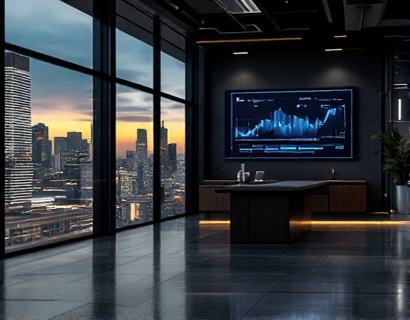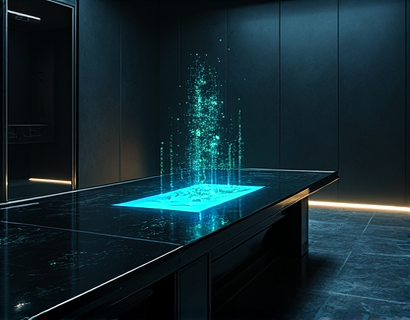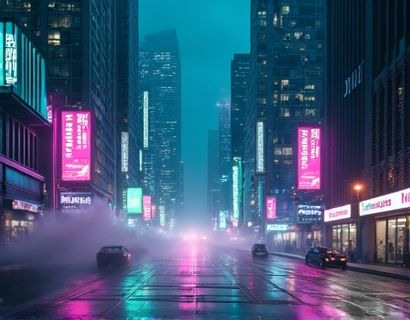Intuitive Online Design: Transforming Visual Creations with Advanced Tools
In the digital age, the ability to create compelling visual content is more crucial than ever. Whether you're a seasoned graphic designer or a content creator just starting out, having access to advanced yet intuitive design tools can significantly enhance your workflow and elevate your visual storytelling. This article delves into the world of intuitive online design platforms, exploring how they can transform your content creation process and boost your brand's visual presence.
Traditional graphic design software, while powerful, often comes with a steep learning curve and requires significant computational resources. In contrast, modern online design tools are redefining the landscape by offering a blend of simplicity, accessibility, and advanced features. These platforms are designed to be user-friendly, making high-quality design accessible to a broader audience, from novices to experts.
Key Features of Intuitive Online Design Platforms
One of the standout features of intuitive online design platforms is their customizable templates. These templates serve as a solid foundation, allowing users to quickly create professional-looking graphics without starting from scratch. The templates are versatile, catering to various purposes such as social media posts, blog headers, infographics, and more. Users can easily modify these templates to fit their specific needs, ensuring consistency and brand alignment across all their visual content.
Another critical aspect is the rich library of design elements. These libraries include a wide range of icons, illustrations, fonts, and color palettes. The design elements are high-quality and professionally crafted, providing users with the tools they need to create visually appealing content. The ease of integration means that users can seamlessly incorporate these elements into their designs, enhancing the overall aesthetic and professionalism of their work.
Enhancing Creativity and Efficiency
The intuitive interface of these online design platforms significantly reduces the time and effort required to create high-quality visuals. Drag-and-drop functionality, real-time previews, and a well-organized toolset make the design process more fluid and enjoyable. This efficiency allows creators to focus more on the creative aspects of their work rather than getting bogged down by technical challenges.
For novices, the guided tutorials and step-by-step instructions provided by these platforms are invaluable. They offer a gentle learning curve, helping users build their skills gradually. Experienced designers, on the other hand, appreciate the advanced features and shortcuts that streamline their workflow. The ability to save and share projects easily ensures that collaboration is seamless, whether working with a team or seeking feedback from peers.
Customization and Brand Consistency
Maintaining brand consistency is crucial for any business or individual looking to build a strong online presence. Intuitive online design platforms offer extensive options for customization, allowing users to tailor their designs to match their brand identity. From adjusting color schemes to modifying typography, these platforms provide the flexibility needed to ensure that every piece of content aligns with the brand's visual language.
Predefined style guides within the platforms can further assist in maintaining consistency. These guides include pre-set combinations of colors, fonts, and layout options that are specifically designed to reflect a brand's identity. By using these guides, users can quickly create multiple pieces of content that look cohesive and professional, saving time and ensuring a unified brand image.
Optimizing for Different Platforms
In today's multi-channel digital landscape, content creators need to optimize their visuals for various platforms. Intuitive online design tools are equipped to handle this challenge by providing responsive design options. This means that the created graphics and layouts will adjust seamlessly to different screen sizes and resolutions, ensuring that the content looks great on desktops, tablets, and mobile devices.
Additionally, these platforms often include features for exporting content in various formats and sizes, making it easy to share on social media, embed on websites, or use in print materials. This versatility ensures that creators can adapt their content to meet the specific requirements of each platform, maximizing reach and engagement.
Boosting Content Creation with Advanced Tools
One of the most significant advantages of using intuitive online design tools is the access to advanced features that were once only available in high-end software. For instance, vector graphics capabilities allow for scalable designs that maintain quality at any size. This is particularly useful for creating logos, icons, and other elements that need to be used across different mediums.
Animation and motion design tools are another exciting addition to these platforms. Creators can add dynamic elements to their static designs, making their content more engaging and memorable. Simple animations can draw attention, convey messages more effectively, and enhance the overall user experience.
Data visualization tools are also becoming increasingly popular. These features enable users to transform complex data sets into visually appealing charts and graphs. This capability is invaluable for content creators who need to present information in a clear and compelling way, such as bloggers, marketers, and educators.
Collaboration and Feedback
The collaborative nature of modern online design platforms cannot be overstated. These tools often include built-in sharing and collaboration features, allowing multiple users to work on a project simultaneously. This real-time collaboration ensures that everyone is on the same page, reducing miscommunications and speeding up the creative process.
Feedback mechanisms are also integrated, making it easy to gather input from team members or clients. Users can share their work, add comments, and track changes, streamlining the review and revision process. This efficiency is particularly beneficial for businesses and agencies that need to manage multiple projects and stakeholders.
Enhancing Visual Storytelling
Visual storytelling is a powerful way to connect with audiences and convey messages effectively. Intuitive online design tools empower creators to craft compelling narratives through their visual content. The combination of customizable templates, rich design elements, and advanced features allows for a more nuanced and engaging storytelling approach.
For example, infographics can be used to break down complex information into digestible visuals, making it easier for audiences to understand and retain the content. Similarly, well-designed social media posts can capture attention and drive engagement, while professional-looking marketing materials can establish credibility and trust.
Storyboards and layout planners within these platforms help creators plan their visual narratives step by step. This structured approach ensures that each element serves a purpose and contributes to the overall story, resulting in more impactful and cohesive content.
Conclusion
Intuitive online design platforms are revolutionizing the way we create and share visual content. By offering a blend of user-friendly interfaces, advanced features, and extensive resources, these tools are making high-quality design accessible to everyone. Whether you're looking to enhance your personal projects or elevate your professional content creation, these platforms provide the necessary tools to transform your visual creations and elevate your brand's presence in the digital space.










































